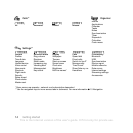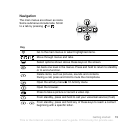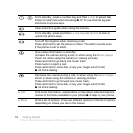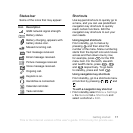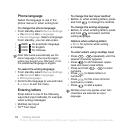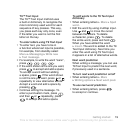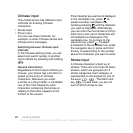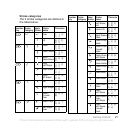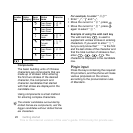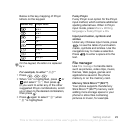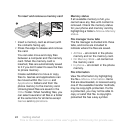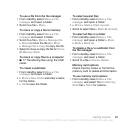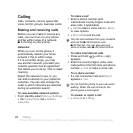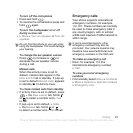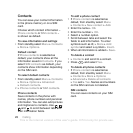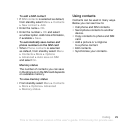
T
h
is
is
th
e
In
te
rn
e
t v
e
rs
io
n
o
f th
e
u
s
e
r's
g
u
id
e
. ©
P
rin
t o
n
ly
fo
r p
riv
a
te
u
s
e
.
22 Getting started
Components
The basic building units of Chinese
characters are components that are
made up of strokes. After entering
the first two strokes of the desired
character, the component and
character candidates that started
with that stroke are displayed in the
candidate row.
Using components is a fast method
for entering complex characters.
For example, to enter “
信息
”
1 Enter “ ”, “ ” and “ ”.
2 Move the cursor to “ 信 ”, press .
3 Move the cursor to “ 息 ”, press
again to select “ 息 ”.
Example of using the wild card key
The wild card key , is used to
supplement unclear strokes in entering
characters. If you want to enter “ 互 ”,
but you only know that “ 一” is the first
and the last stroke of the character and
that the total number of strokes is four,
enter , , , . The
character is displayed in the candidate
row.
Pinyin input
Press the keys containing the required
Pinyin letters, and the phone will make
various proposals on the screen,
according to the pronunciation rules
of Mandarin.
Over-Down-
Over-Hook
乃 透 鼐
隽 杨
Over-Down-
Over-Down
凸
Curved-
Hook
狗 豹 家
逐 狂
Over-Down-
Curved-
Hook
乙 九 瓦
飞 风
Over-Down-
Over
投 沿 船
凹
Over-Down-
Lift
话 计 认
讯
? (Wild card key)
The smaller candidates surrounded by
dotted frames are components, and the
bigger candidates without dotted frames
are characters.
Number
Key
Stroke
Category
Basic
Stroke
Stroke
Name
Character



